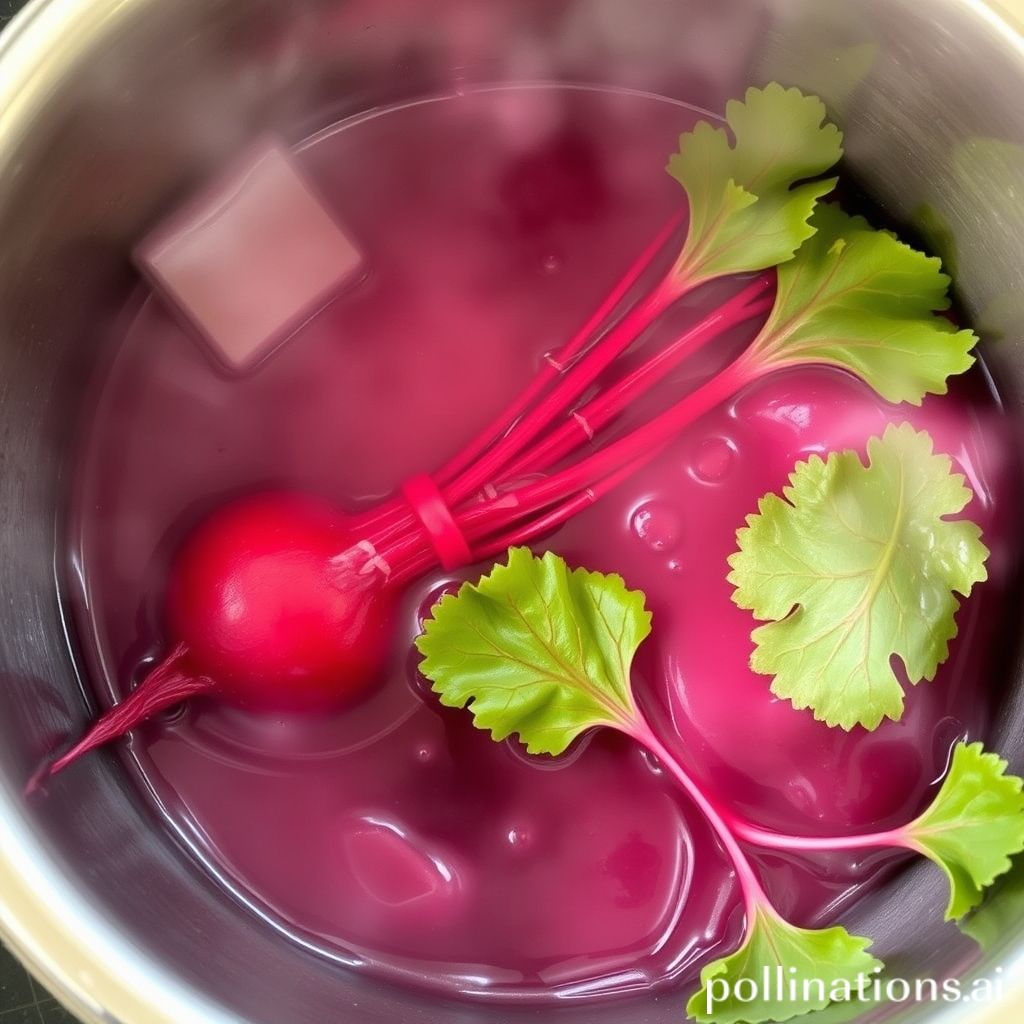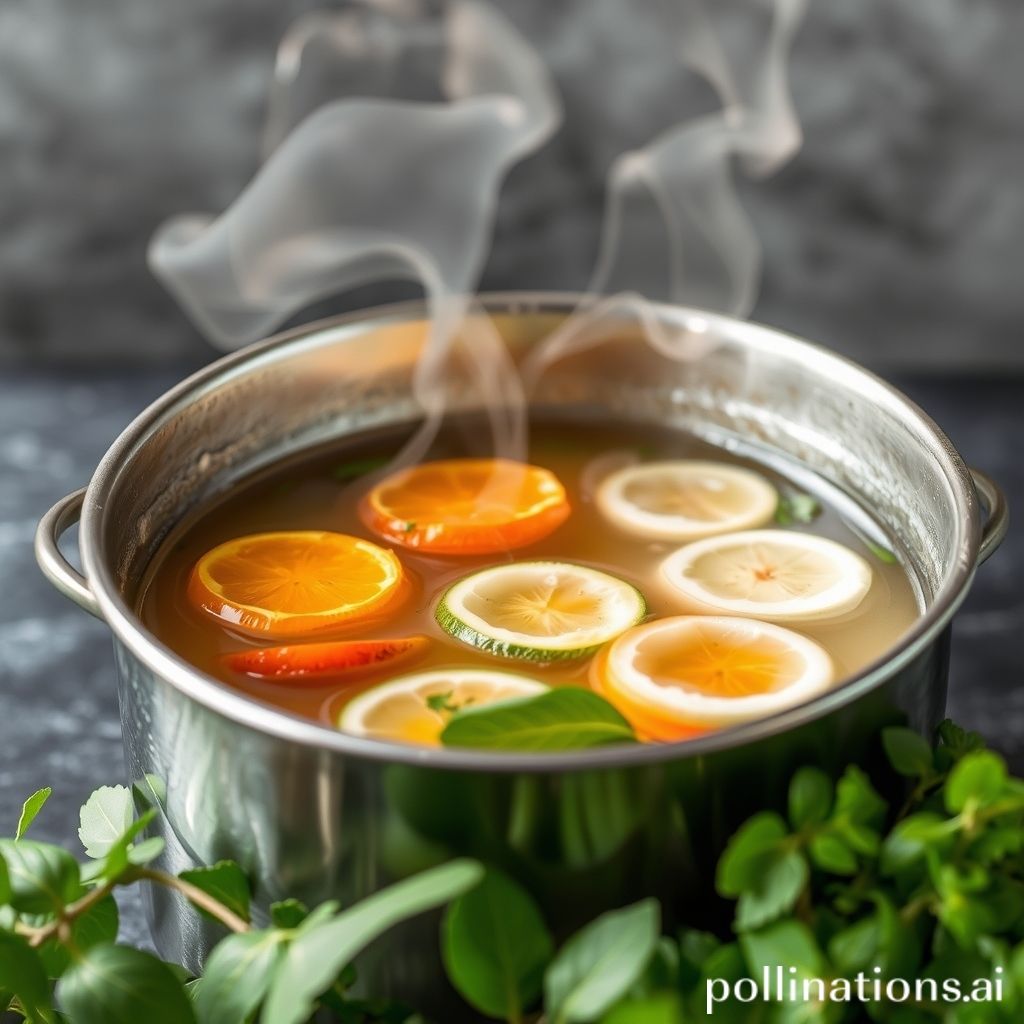Does Boiling Beetroot Lose Nutrients?
In regard to boiling beetroot, people often wonder if this cooking method leads to a loss of nutrients. Many individuals are curious about how different cooking techniques impact the nutritional value of beetroot and if boiling is the best way to preserve its nutrients.
Researchers have conducted studies to determine the effects of boiling on beetroot’s nutrient content, aiming to provide answers to these inquiries. If you’re looking for information on the safety and health benefits of boiling beetroot, you’ve come to the right place. In this article, we will explore whether boiling beetroot causes a loss of nutrients and provide you with the necessary information to make an informed decision.

Table of Contents
Nutritional Value of Beetroot
1. Vitamins and Minerals in Beetroot
Beetroot is a rich source of vitamins and minerals that are essential for good health. It contains vitamin C, which boosts the immune system and promotes healthy skin. It also provides folate, which is important for cell division and DNA synthesis. In addition, beetroot is a good source of potassium, magnesium, and iron, which help regulate blood pressure, maintain a healthy heart, and prevent anemia, respectively.
2. Antioxidants in Beetroot
Beetroot is considered a superfood because of its high antioxidant content. Antioxidants protect our cells from damage caused by free radicals. Beetroot contains betalains, which are antioxidants that give it its vibrant red color. These antioxidants have various health benefits, including reducing inflammation, improving digestion, and supporting detoxification processes in the body.
A study published in the Journal of Agricultural and Food Chemistry found that boiling beetroot has minimal impact on its antioxidant content. In fact, boiling actually increases the total antioxidant activity of beetroot, making it even more beneficial for our health. This suggests that boiling beetroot is a viable cooking method that does not significantly diminish its nutritional value.
Expert Tips: Boost your immune system and protect your cells by adding antioxidant-rich beetroot to your diet. Boiling enhances its benefits!Cooking Methods and Nutrient Loss
1. Boiling Beetroot
Boiling beetroot is a common cooking method, but does it cause a loss of nutrients? Let’s explore the effects of boiling on the nutritional value of beetroot.
- Effect on Vitamin C Content: Boiling beetroot can lead to a reduction in vitamin C content. When beetroot is boiled, the heat causes the water-soluble vitamin to leach out into the cooking liquid.
- Effect on Folate Content: Boiling also affects the folate content of beetroot. Folate, which is an important B-vitamin for cell growth and development, can be partially lost during the boiling process.
2. Steaming Beetroot
Steaming is another popular cooking method for beetroot. Let’s see how steaming affects the retention of nutrients.
- Retention of Nutrients: Steaming beetroot helps retain more nutrients compared to boiling. The gentle heat of steam helps preserve water-soluble vitamins like vitamin C and minimizes nutrient loss.
3. Roasting Beetroot
Roasting is a flavorful way to cook beetroot, but what impact does it have on the antioxidants present in this vibrant vegetable?
- Impact on Antioxidants: Roasting beetroot can actually enhance the levels of antioxidants. The dry heat of roasting concentrates the natural sugars and antioxidants in the beetroot, resulting in a more intense flavor and potentially increased antioxidant activity.
To summarize, At the same time boiling beetroot may lead to some nutrient loss, steaming and roasting are cooking methods that can help retain or even enhance the nutritional value of this root vegetable.
| Cooking Method | Nutrient Retention |
|---|---|
| Boiling | Some loss of vitamin C and folate |
| Steaming | Retains more nutrients compared to boiling |
| Roasting | Potential increase in antioxidant levels |
Factors Affecting Nutrient Loss During Boiling
1. Cooking Time
The duration of boiling beetroot can impact the loss of nutrients. If boiled for too long, certain vitamins and minerals may be lost.
2. Water Temperature
The temperature at which beetroot is boiled can also affect nutrient loss. Higher temperatures can lead to a greater reduction in the nutritional content of the vegetable.
3. Water Volume
The amount of water used for boiling beetroot can influence the extent of nutrient loss. Using excessive water may result in a higher loss of water-soluble vitamins.
Understanding these factors can help individuals make informed decisions when cooking beetroot.
Additional Considerations:
- Cutting Method: The size and shape of beetroot pieces may impact nutrient loss during boiling.
- Peeling: Peeling beetroot before boiling can potentially lead to nutrient loss.
- Storage: The condition of beetroot before cooking, such as freshness and storage methods, can affect its nutritional value.
It is important to note that In the course of boiling beetroot may cause some nutrient loss, the vegetable still retains a significant amount of its vitamins, minerals, and antioxidants. To minimize nutrient loss, it is advisable to use minimal water, reduce cooking time, and avoid high temperatures.
| Nutrient | Effect of Boiling |
|---|---|
| Vitamin C | Some loss |
| Folate | Minimal loss |
| Potassium | Minimal loss |
| Iron | Minimal loss |

Retaining Nutrients In the course of Boiling Beetroot
1. Cutting beetroot into larger pieces
When boiling beetroot, it is recommended to cut it into larger pieces to retain more nutrients. Smaller pieces have a larger surface area, which can lead to nutrient loss during cooking. By cutting the beetroot into larger chunks or leaving them whole, you can minimize the contact area with water and reduce nutrient leaching.
2. Using minimal water
To prevent excessive nutrient loss, it is advisable to use minimal water when boiling beetroot. Nutrients can leach into the cooking water, especially when using a large volume of water. By using just enough water to cover the beetroot, you can minimize the contact surface and preserve more nutrients.
3. Monitoring cooking time
The cooking time is crucial for retaining nutrients In the course of boiling beetroot. Overcooking can result in a significant loss of nutrients. It is important to monitor the cooking process and remove the beetroot from boiling water as soon as it reaches the desired tenderness. This helps ensure that the nutrients are preserved to a greater extent.
| Information |
|---|
| Retaining Nutrients In the course of Boiling Beetroot: |
| – Cut beetroot into larger pieces |
| – Use minimal water |
| – Monitor cooking time |
Comparison of Cooking Methods and Nutrient Retention
1. Boiling vs. Steaming
Boiling and steaming are two common cooking methods used for beetroot. Boiling involves submerging the vegetable in water and cooking it at a high temperature, During steaming involves placing the beetroot on a steaming rack or in a steamer basket above boiling water. Both methods have their advantages and disadvantages in terms of nutrient retention.
Boiling: When beetroot is boiled, some water-soluble nutrients may leach out into the cooking water. Notwithstanding, you can minimize nutrient loss by using minimal water and cooking the beetroot for a shorter duration. Boiling can also help soften the texture of beetroot, making it easier to consume.
Steaming: Steaming is a gentler cooking method that retains more nutrients compared to boiling. The beetroot is not in direct contact with water, reducing the risk of nutrient loss. Steaming also helps preserve the vibrant color and natural flavor of the vegetable.
2. Boiling vs. Roasting
Another cooking method often compared with boiling for beetroot is roasting. Roasting involves baking the beetroot in an oven at a higher temperature for an extended period. Let’s explore how roasting compares to boiling in terms of nutrient retention.
Boiling: As mentioned earlier, boiling can cause some nutrient loss due to leaching into the cooking water. Notwithstanding, you can control the loss by minimizing water usage and cooking time.
Roasting: When beetroot is roasted, it undergoes a caramelization process that enhances its natural sweetness. Although some nutrient loss may occur during roasting, the overall impact is relatively minimal. Roasting can intensify the flavors and create a slightly crispy texture.
Conclusion
Boiling beetroot can cause a loss of nutrients. Cooking methods, including boiling, can impact the nutritional value of beetroot.
In the course of boiling may be a convenient cooking option, it is not the most effective method for preserving the nutrients in beetroot. To retain more nutrients, alternative cooking techniques like steaming or roasting are recommended. It is important to consider the desired level of nutrient retention when choosing a cooking method for beetroot, as different methods can have varying effects on its nutritional value.
FAQ about Boiling Beetroot and Nutrient Loss
FAQ 1: Does boiling beetroot remove all its nutrients?
Boiling beetroot can lead to some nutrient loss, but it doesn’t remove all of its nutrients. Water-soluble vitamins like vitamin C may be slightly reduced due to the heat and water used during boiling. Nonetheless, beetroot still retains a significant amount of its nutrients even after boiling.
FAQ 2: How long should I boil beetroot to retain its nutrients?
To retain as many nutrients as possible, it is recommended to boil beetroot for about 15 to 20 minutes. This cooking time is sufficient to soften the beetroot At the same time minimizing nutrient loss. Overcooking can lead to further nutrient degradation, so monitoring the cooking time is important.
FAQ 3: Can I consume the boiled water from beetroot?
Yes, you can consume the boiled water from beetroot. The water used to boil beetroot may contain some of the nutrients that have leached out during the cooking process. It can be used as a base for soups, stews, or even as a refreshing drink. Just make sure to strain the water before using it to remove any impurities.
FAQ 4: Are there any other cooking methods that better preserve beetroot’s nutrients?
Steaming or roasting beetroot is considered to be a cooking method that better preserves its nutrients compared to boiling. These methods require less water and shorter cooking times, reducing nutrient loss. Nonetheless, each cooking method may slightly alter the taste and texture of the beetroot, so it’s a matter of personal preference.
FAQ 5: Can I freeze boiled beetroot for later use?
Yes, you can freeze boiled beetroot for later use. After boiling, allow the beetroot to cool completely before storing it in airtight containers or freezer bags. Freezing helps to preserve the nutrients present in the beetroot. When you’re ready to use it, simply thaw the beetroot in the refrigerator overnight or use it directly in your favorite recipes.
Read Similar Post:
1. Say Goodbye to Beet Juice Stains: Effective Methods for Removal
2. Can Beet Juice Aid Weight Loss? Uncover the Potential Benefits

